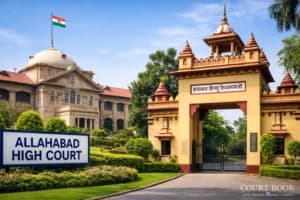In a strongly worded judgment, the Nagpur Bench of the Bombay High Court has set aside the conviction of Roshan Bandre, a 35-year-old labourer, who had been sentenced to 10 years in prison for rape. Justice Nivedita P. Mehta, delivering the verdict on September 24, 2025, found major gaps and inconsistencies in the prosecution’s evidence-particularly regarding the alleged victim’s age and her changing statements.
The Court held that the prosecution "utterly failed" to prove that the girl was a minor or that the sexual act was non-consensual.
Background
The case began in October 2017, when Vanita Kale, a resident of Nagpur, filed a complaint at MIDC Police Station alleging that her elder daughter, Pooja, aged 17, was kidnapped by their former landlord, Roshan Bandre. According to the FIR, Pooja left home on a red Scooty with the accused and did not return for two days. When she came back, she alleged that Bandre had sexually assaulted her several times.
A chargesheet followed under Sections 363 and 376 of the IPC, along with Section 4 of the POCSO Act. In October 2022, the Special POCSO Court, Nagpur, convicted Bandre under Section 376 IPC and sentenced him to 10 years of rigorous imprisonment and a fine of ₹3,000.
However, the same court acquitted him of the kidnapping and POCSO charges after observing that the prosecution had not proven the girl’s minority with certainty.
Court's Observations
Justice Mehta's 17-page judgment dissected the evidence piece by piece. The bench noted serious contradictions in the victim's stated date of birth: her mother said it was 4 June 2002, while the girl herself claimed 21 January 2004. The school record mentioned the same date, but the birth certificate presented by the prosecution carried different parent names and no name of the child-rendering it "unreliable and unworthy of belief."
"The prosecution has utterly failed to establish, beyond reasonable doubt, that the victim was a minor on the date of the incident," the bench observed.
Justice Mehta also questioned the credibility of the victim's testimony, which changed significantly across different stages-FIR, magistrate's statement, and court deposition.
Initially, she said the accused threatened to kill her mother if she refused to go with him. Later, she claimed he made her semi-conscious by offering food mixed with some substance. But none of this appeared in her original complaint or 164 CrPC statement.
"The testimony of the prosecutrix has undergone substantial variation at different stages," the judge remarked, adding that such inconsistencies "cast serious doubt on the truthfulness of her version."
Arguments from Both Sides
Counsel Amit Balpande, appointed to represent Bandre, argued that the alleged victim went with the accused voluntarily. He pointed to testimony from a witness, Kalpana Bhoyar, who said that the girl and the accused stayed at her house for two to three days and that the girl wore a mangalsutra and introduced herself as Bandre's wife.
Read also:- Kerala HC Notice to State Over Cop's Alleged Rude Behaviour Toward Producer
“The conduct of the victim clearly indicates voluntary companionship with the accused,” Balpande submitted.
On the other hand, Additional Public Prosecutor S.S. Hulke maintained that even if consent existed, it was irrelevant since the victim was allegedly a minor. He relied on medical evidence showing abrasions and redness, claiming it confirmed non-consensual intercourse.
However, the High Court found that while the medical report showed "signs of sexual activity," it did not conclusively prove force or coercion.
Court's Analysis and Reasoning
The bench referred to recent Supreme Court precedents, including State of Himachal Pradesh v. Sanjay Kumar (2025) and State (GNCT of Delhi) v. Vipin @ Lalla (2025), which stressed that a rape conviction can rest solely on the testimony of the victim only if that testimony inspires full confidence.
"It is not believable that when the prosecutrix, known to the accused, was with him for several days, she would not raise any alarm if she had been forcibly taken," Justice Mehta noted.
The Court underlined that the burden of proof lies with the prosecution, and in cases of serious offences like rape, conviction cannot stand on uncertain or contradictory testimony.
Final Decision
After assessing the contradictions in statements, unreliable proof of age, and lack of corroborative evidence, the High Court concluded that the prosecution failed to prove guilt beyond reasonable doubt.
Justice Mehta ruled:
"The conviction and sentence dated 17th October 2022 are quashed and set aside. The appellant is acquitted of the charge under Section 376 IPC and shall be released forthwith, if not required in any other case."
The Court also directed that the fine amount be refunded and the appointed advocate's fees be paid within four weeks.
With this, the seven-year-long legal battle that began with a missing girl report came to a close-ending in acquittal for the accused and a stern reminder from the Court about the importance of credible, consistent, and reliable evidence in sexual assault cases.
Case Title: Roshan S/o Ruprao Bandre v. State of Maharashtra
Case Number: Criminal Appeal No. 440 of 2023















